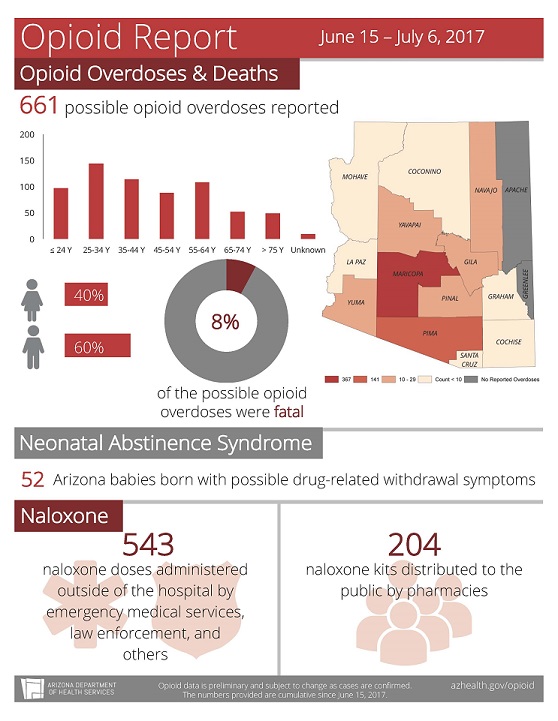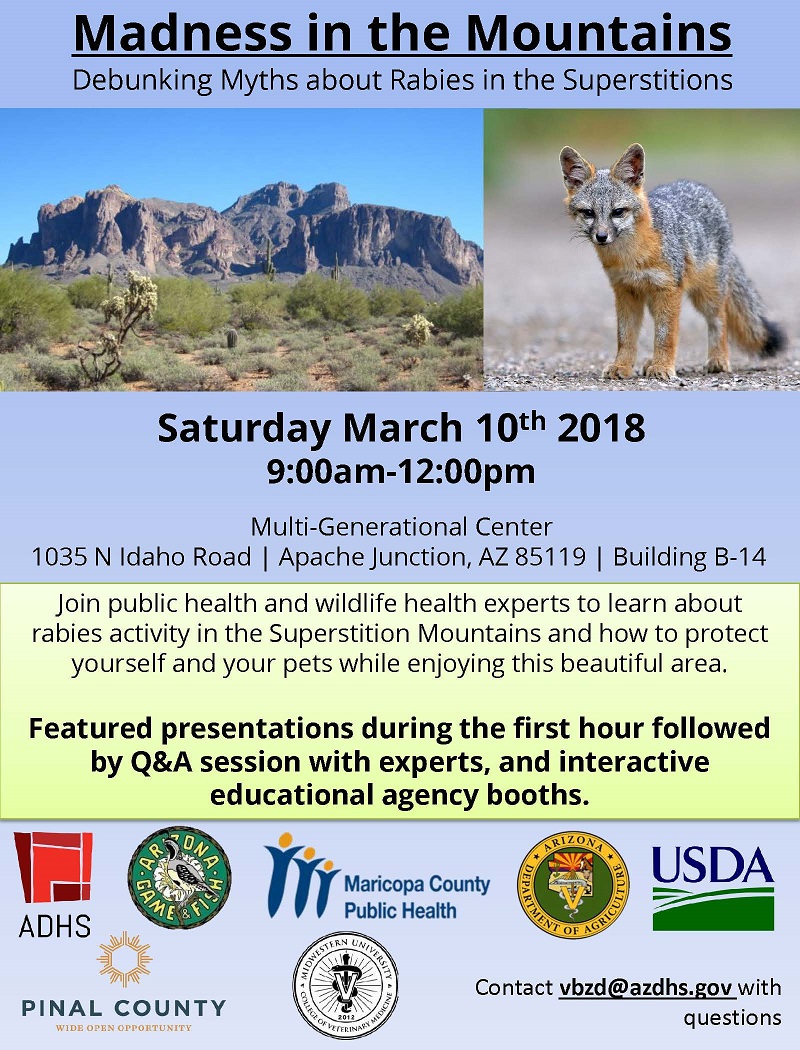 With three weeks of real time data reported to us, there has been 661 possible opioid overdoses in Arizona, with 8 percent of those resulting in death. This is cumulative data since Governor Ducey’s executive order for enhanced surveillance went into effect on June 15. The report for June 15 to July 6 shows that the highest percent of suspected opioid overdoses is occurring among Arizonans aged 25-34, and 60 percent of all suspected cases occur among men.
With three weeks of real time data reported to us, there has been 661 possible opioid overdoses in Arizona, with 8 percent of those resulting in death. This is cumulative data since Governor Ducey’s executive order for enhanced surveillance went into effect on June 15. The report for June 15 to July 6 shows that the highest percent of suspected opioid overdoses is occurring among Arizonans aged 25-34, and 60 percent of all suspected cases occur among men.
Our team of epidemiologists continues to refine the data and confirm cases as we gather more information. In order to enhance reporting, we’ve been holding webinar training with required reporters, as well as posting Frequently Asked Questions to our opioid response website. This week we posted Frequently Asked Questions (FAQs) for Pharmacists and Frequently Asked Questions (FAQs) about Reporting on Neonatal Abstinence Syndrome.
Expanding the use of naloxone by first responders is an important part of the emergency response. The report we posted this week shows that 543 naloxone doses were administered outside of the hospital by emergency medical services, law enforcement officers, and others in order to reverse overdoses and save lives. To help facilitate further expansion of naloxone, this week I issued a standing order memo for EMS first responder organizations and ground and air ambulance organizations that do not already have medical direction for an opioid overdose recognition and treatment program to authorize the purchase and administration of naloxone to patients suspected of experiencing an overdose. In particular, this order is intended to fill the gaps in areas of the state that our first responders are not currently carry naloxone.
We also continue to train law enforcement agencies on carrying and administering naloxone. On July 17 we are sponsoring a naloxone training for law enforcement agencies in Yuma in collaboration with the Arizona Peace Officers Standards and Training Board (AZ-POST). Local and state law enforcement agencies whose staff have completed this training or training consistent with ADHS or AZ-POST standards are eligible for free naloxone.
We also made progress this week on one of the directives of the Governor Ducey’s emergency declaration to initiate emergency rule making with the Arizona Attorney General’s Office in order to develop rules for opioid prescribing and treatment within health care institutions. The ADHS team submitted the emergency rulemaking package to the Attorney General’s Office this week. When the rules are approved, we will notify the licensed health care institutions and provide webinars to communicate the new rules and answer questions.
Visit our website www.azhealth.gov/opioid to get more information and updates. We publish our new data on our website Monday mornings at 9 am. We will be moving our opioid update blogs to Mondays after this week.











